26
How to Coordinate Medication Plans After Hospital Discharge: A Clear Guide for Patients and Providers
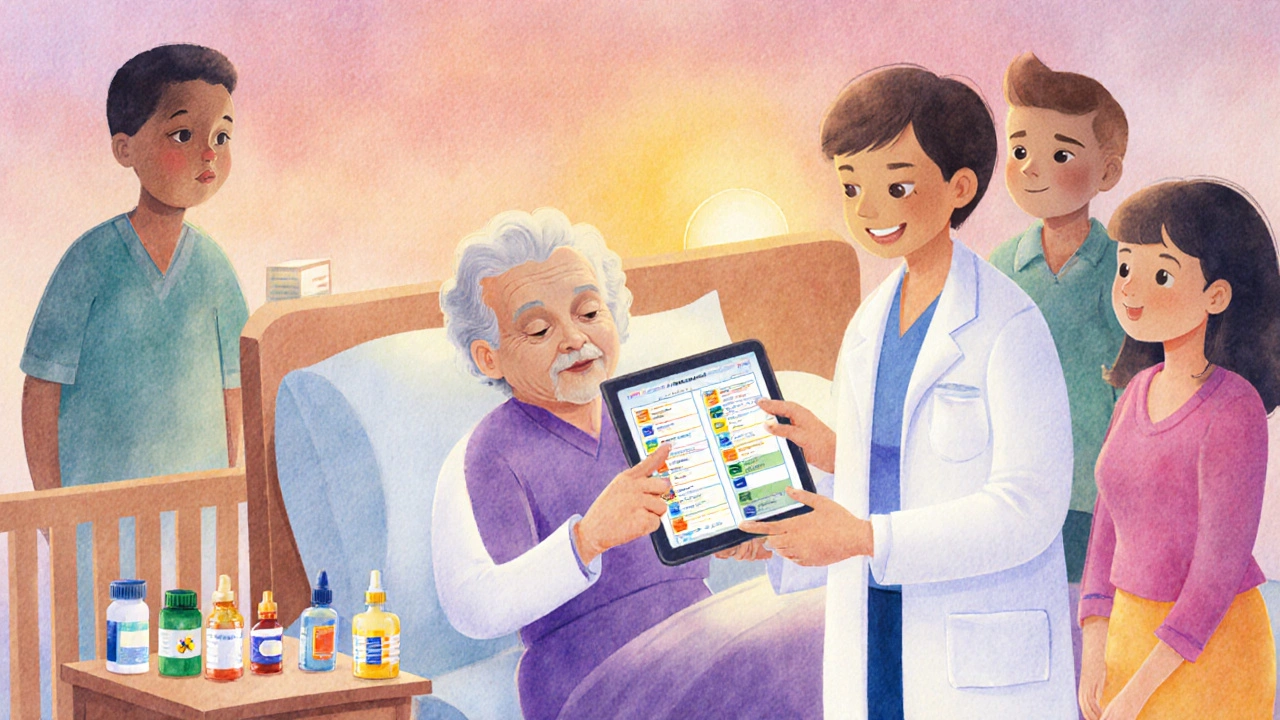
When you leave the hospital, your body is still healing. But the biggest risk to your recovery isn’t always the illness you were treated for-it’s the medication plan you take home. Studies show that up to 70% of patients leave the hospital with a medication list that doesn’t match what they were actually taking before admission. That mismatch can lead to dangerous side effects, missed doses, or even a return trip to the hospital.
Why Medication Reconciliation Matters After Discharge
Medication reconciliation isn’t just paperwork. It’s the process of comparing your hospital discharge meds with your home meds to make sure nothing got lost, added, or changed by accident. The National Quality Forum calls this NQF 0097, and it’s now a required part of Medicare and Medicaid quality reporting. Why? Because medication errors after discharge are one of the top causes of hospital readmissions.Think about it: You might have been taken off your blood thinner while in the hospital for surgery. Or your doctor might have switched your high blood pressure pill to a different brand. If your primary care doctor doesn’t know about those changes-or if you forgot to tell them-you could end up taking two blood pressure pills by accident, or worse, not taking one at all.
According to the Agency for Healthcare Research and Quality, medication discrepancies cause 18-50% of post-discharge errors. And 6.5% of all hospital readmissions are linked to these mistakes. That’s over 200,000 avoidable returns to the hospital every year in the U.S. alone.
What Gets Included in a Medication Reconciliation
It’s not just about pills. A full medication reconciliation includes:- All prescription medications
- Over-the-counter drugs (like ibuprofen or antacids)
- Vitamins and supplements (even fish oil or magnesium)
- Herbal remedies (like St. John’s Wort or ginkgo biloba)
- Eye drops, creams, inhalers, patches, and injectables
Many patients forget to mention these because they don’t think they’re "real" medicine. But herbs can interact with blood thinners. Antacids can block absorption of antibiotics. And skipping your insulin for a few days because you thought you were "off it" can land you back in the ER.
The goal is to create one accurate, up-to-date list that both you and your providers agree on. That list becomes your new baseline for care.
Who Should Be Doing This-and When
The ideal time for reconciliation is within 30 days of discharge. But who should do it? The answer isn’t always your primary care doctor.Research shows that pharmacist-led reconciliation cuts medication errors by over 30%. Pharmacists have the training to spot interactions, check for duplicate prescriptions, and understand how dosages change between hospital and home settings. In one study, patients who had their meds reviewed by a pharmacist had 28% fewer readmissions in the first 30 days.
But not every clinic has a pharmacist on staff. So here’s what you can expect:
- Option 1: Phone or video check-in - Your provider’s office calls you within 7-14 days after discharge. They ask you to read out your current meds. They compare it to your discharge list. No visit needed. This is tracked using CPT code 1111F.
- Option 2: In-person follow-up visit - You go to your doctor’s office within 30 days. They review your meds face-to-face. This is billed as a Transition of Care visit (CPT 99495 or 99496) and may be covered by insurance.
Important note: Only one of these visits can be billed per hospital discharge. So if your specialist and your primary care doctor both try to bill for it, only one gets paid. That’s why communication between providers is critical.
How to Prepare Before You Leave the Hospital
Don’t wait until you get home to fix this. Start preparing while you’re still in the hospital.- Bring your own meds list - Before admission, write down every pill, patch, and drop you take. Include doses and times. If you don’t have one, ask your pharmacy for a printed list.
- Ask for a discharge summary - Request a copy of your discharge instructions. Make sure it includes a complete list of your new meds and any changes.
- Ask: "What changed? Why?" - If a medication was stopped, added, or changed, ask the nurse or doctor to explain why. Write it down.
- Get the contact info - Ask who to call if you have questions after discharge. Don’t just assume your PCP will know what happened.
One patient in Sydney told me she left the hospital thinking her cholesterol pill was discontinued. Two weeks later, she had chest pain. Turns out, it was still needed-her doctor just forgot to restart it. She didn’t know to ask.
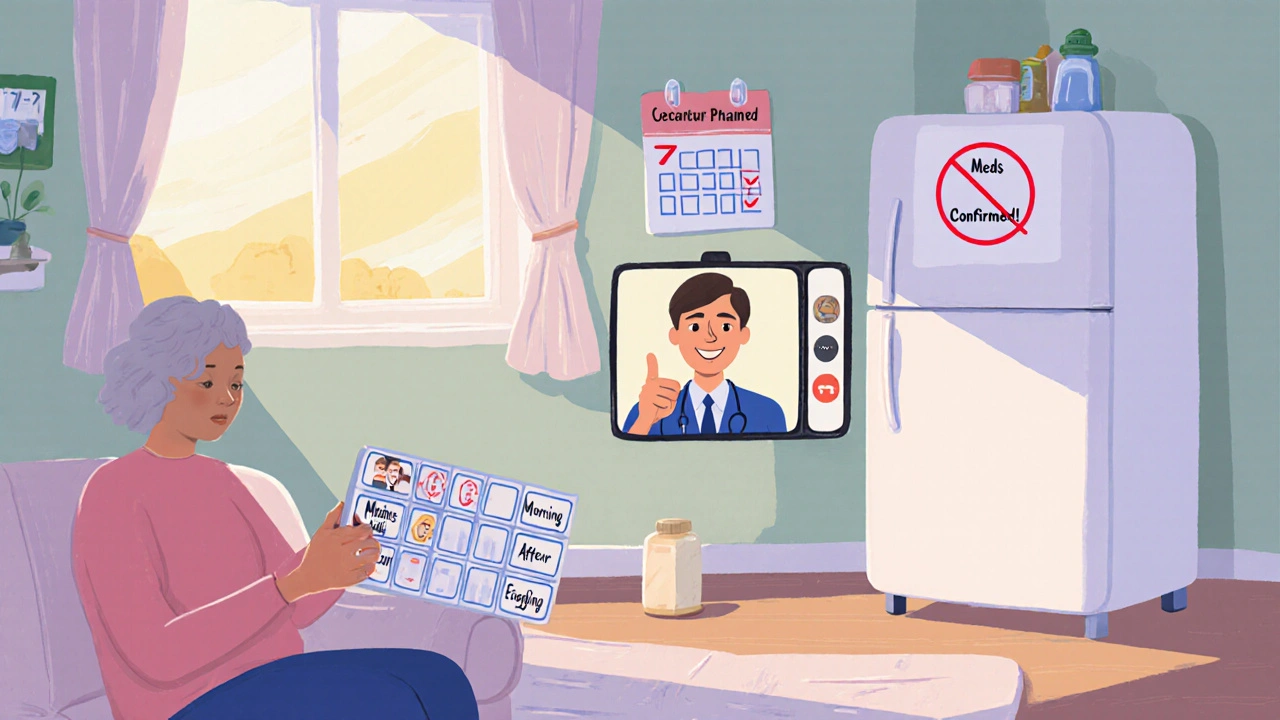
What to Do When You Get Home
The first week after discharge is the most dangerous. Here’s your action plan:- Don’t refill old prescriptions - If your hospital list says to stop a medication, don’t refill it. Even if you think you "need it."
- Use a pill organizer - Separate your meds by morning, afternoon, evening. Label them clearly.
- Check with your pharmacist - When you pick up your new scripts, ask the pharmacist: "Are these different from what I was taking before?"
- Call your doctor’s office - If you haven’t heard from them within 7 days, call them. Say: "I was recently discharged. I’d like to confirm my medication plan."
Don’t wait for them to call you. Most practices are busy. You have to be the one to push for clarity.
Red Flags That Something’s Wrong
Watch for these signs after discharge:- New dizziness, confusion, or fatigue
- Swelling in your ankles or shortness of breath
- Unusual bruising or bleeding
- Diarrhea or constipation that started after you got home
- Feeling worse instead of better
These aren’t normal. They could mean a drug interaction, a missed dose, or a wrong dose. Call your provider immediately. If you can’t reach them, go to urgent care. Don’t wait.
How Technology Is Helping (and Hurting)
Electronic health records (EHRs) are supposed to make this easier. But in reality, many hospitals and clinics use different systems. Your discharge summary might not show up in your GP’s system at all.Top-performing hospitals now use:
- Automated alerts in EHRs that flag when a patient is discharged on a high-risk medication (like warfarin or insulin)
- Mobile apps that let patients upload their med list and get reminders
- AI tools that compare your pharmacy refill history with your discharge list to spot mismatches
But if your doctor’s office doesn’t use any of these tools, you’re back to relying on paper and memory. That’s why your involvement is still the most important factor.
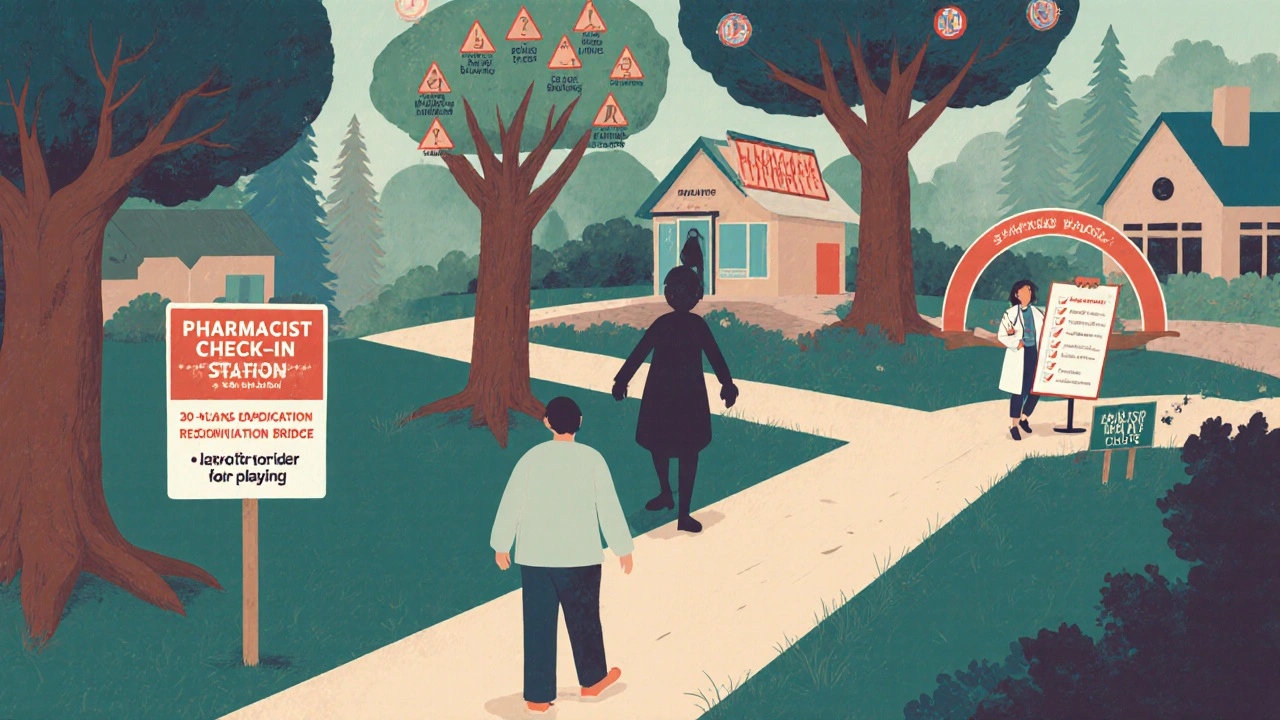
What to Do If You’re Not Getting Follow-Up
If your provider doesn’t reach out within two weeks:- Call their office and ask: "Has my discharge medication list been reconciled?"
- If they say no, ask: "Can I schedule a medication review visit?"
- If they refuse or ignore you, ask for a referral to a pharmacist or a care coordinator.
- If you’re on Medicare, you may qualify for a free Medication Therapy Management (MTM) session. Ask your pharmacist if you’re eligible.
There’s no excuse for silence. You paid for this care. You deserve to know what you’re supposed to be taking-and why.
The Bottom Line
Your hospital stay ends when you walk out the door. But your safety doesn’t. Medication reconciliation isn’t a box to check. It’s a lifeline.Here’s your simple 3-step rule:
- Know your meds before you leave.
- Confirm your meds within 7 days.
- Speak up if something doesn’t feel right.
Don’t let confusion after discharge become a crisis. Take control. Ask questions. Keep a written list. And never assume someone else is handling it.
What happens if I don’t get my medications reconciled after hospital discharge?
If your medications aren’t reconciled, you’re at high risk for dangerous errors. You might take a drug that was stopped in the hospital, miss a drug that was added, or take the wrong dose. This can lead to side effects, hospital readmissions, or even life-threatening events like internal bleeding or kidney failure. Studies show that patients without reconciliation are 30% more likely to be readmitted within 30 days.
Can my specialist and my primary care doctor both do medication reconciliation?
No. Only one provider can bill for a Transition of Care visit (CPT 99495/99496) per hospital discharge. This creates a gap-sometimes neither provider takes responsibility. That’s why it’s up to you to clarify who will handle it. If you see both a specialist and a PCP, ask them to coordinate. If they can’t agree, request a pharmacist-led reconciliation, which doesn’t require a visit and can be done over the phone.
Do I need to bring my medications to my follow-up appointment?
Yes. Bring all your pills, patches, creams, and supplements in their original bottles. This is the most accurate way for your provider or pharmacist to verify what you’re actually taking. Many patients say they take a certain medication, but the bottle shows it was never filled-or they’re taking a different strength. Seeing the actual bottles cuts guesswork by 90%.
Is medication reconciliation covered by insurance?
Yes, if done correctly. Medicare and most private insurers cover both the phone/video reconciliation (CPT 1111F) and in-person Transition of Care visits (CPT 99495/99496). Some Medicare Advantage plans even cover free Medication Therapy Management sessions. If your provider says it’s not covered, ask for the CPT code and call your insurer directly. You’re entitled to this service.
What if I don’t have a primary care doctor?
You still need reconciliation. Contact your local pharmacy-they can often help you create an accurate medication list. Community health centers and public health clinics also offer free or low-cost medication reviews. In Australia, you can ask your local Medicare office for a referral to a pharmacist-led service. Don’t wait. Your safety depends on having a clear, verified list.
Next Steps for Patients
- Print out your discharge medication list. Keep it in your wallet or phone. - Set a reminder to call your doctor 7 days after discharge. - If you’re on 5+ medications, ask for a free Medication Therapy Management session. - Never refill a medication without checking if it’s still prescribed. - If you’re unsure about any change, call your pharmacist. They’re the medication experts.Next Steps for Caregivers and Family Members
- Go with the patient to the discharge briefing. Take notes. - Help them organize their pill boxes. - Call the doctor’s office if the patient forgets to follow up. - Keep a copy of the updated medication list for your own records. - Watch for changes in behavior, appetite, or energy levels-they can signal a bad drug interaction.Medication reconciliation isn’t complicated. But it’s easy to ignore. Don’t let it slip through the cracks. Your health depends on it.
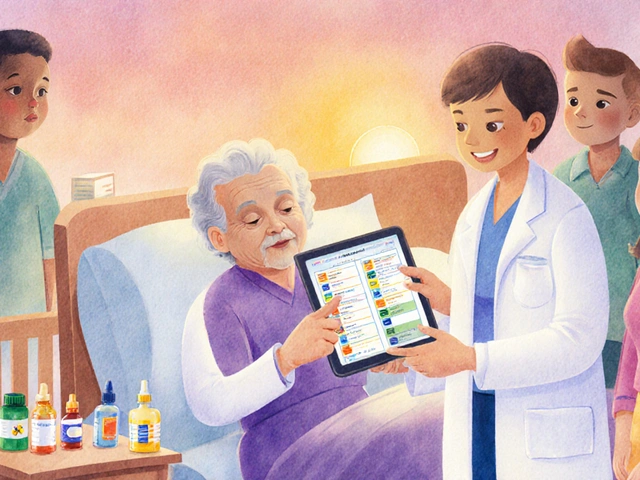
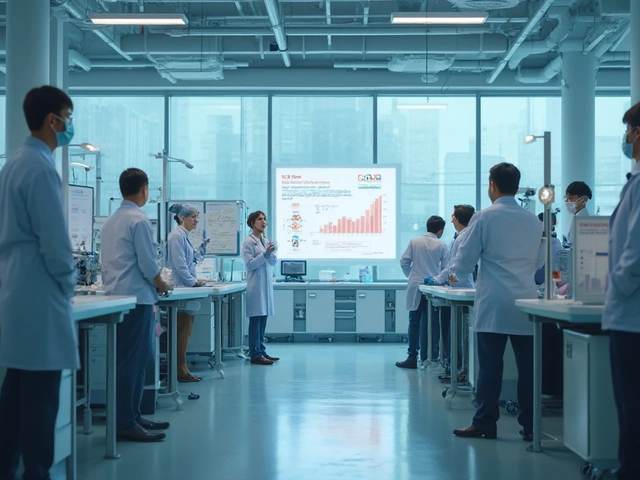
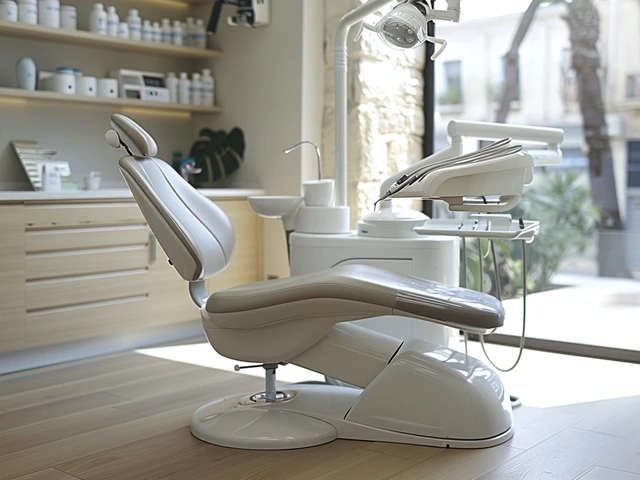


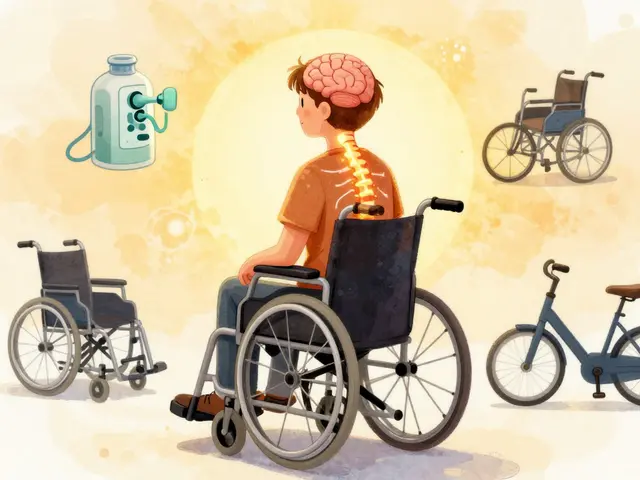


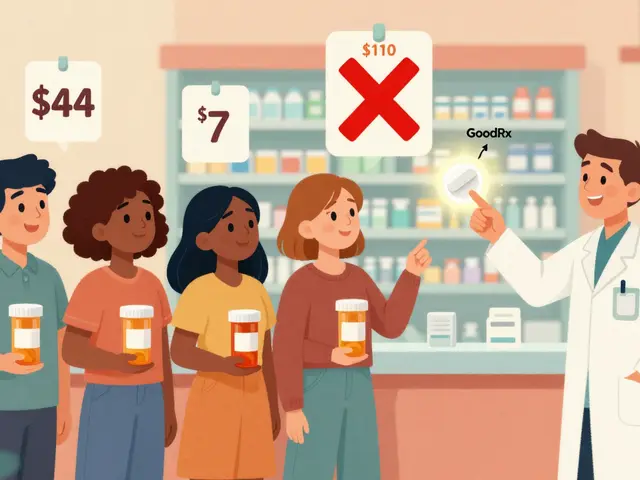
Jebari Lewis
November 27, 2025 AT 09:53Medication reconciliation isn’t just a bureaucratic formality-it’s a life-or-death protocol that hospitals are legally obligated to get right. The fact that 70% of discharge summaries contain errors is a national scandal. I’ve seen elderly patients on warfarin get switched to a new anticoagulant without proper INR monitoring, and within days they’re back in the ER with internal bleeding. This isn’t negligence-it’s systemic failure. We need mandatory pharmacist-led reconciliation embedded in every discharge workflow, not as an optional add-on. If your provider doesn’t offer it, demand it. And if they refuse, file a complaint with CMS. Your life isn’t a paperwork exercise.
Also, CPT 1111F is underutilized because providers don’t want to do phone calls. But it’s free for Medicare and saves $15,000 per avoided readmission. Stop letting laziness kill people.
Bring your meds in bottles. Always. No exceptions.
And if you’re a caregiver-don’t wait for them to ask. Take charge. You’re the only one who will.
Stop normalizing this chaos.
Emma louise
November 28, 2025 AT 22:06Oh wow, another ‘trust your pharmacist’ lecture from the medical industrial complex. Let me guess-next you’ll tell me to take my vitamins with a side of fluoride and pray to the FDA. I’ve had three different pharmacists give me conflicting advice on the same meds. One said fish oil was fine, another said it’d make me bleed out. Meanwhile, my doctor changed my dose three times without telling me. Who’s really in charge here? The guy who printed the label? Or the guy who’s never seen me in person?
Also, why is it always the patient’s job to ‘speak up’? Shouldn’t the system be designed so I don’t have to be a detective just to not die?
And why does every ‘expert’ in this thread act like we’re all just forgetting our pills? What about the people who can’t read? Can’t afford prescriptions? Don’t have phones? You people write guides for the privileged. The rest of us just hope we don’t OD on Tuesday.
Melania Rubio Moreno
November 29, 2025 AT 17:28ok so i read this whole thing and i think its kinda dumb tbh. like why do we even need a whole guide for this? just dont take meds you dont remember getting. also why do u need to bring bottles? just tell them what u take. its not that hard. also i think pharmacists are overrated. my cousin works at cvs and she mixed up my blood pressure pill once. i was fine. lol. maybe people are just too lazy to remember their own meds. like why do u need a pill organizer? just put em in a cup. its 2025. we got phones. set a reminder. done.
also i think the hospital should just give u a list. why is it my job to ‘ask what changed’? they’re the professionals. i pay taxes for this. why am i doing their job?
Gaurav Sharma
December 1, 2025 AT 05:11Let us not ignore the cultural dimension. In India, medication adherence is governed by familial hierarchy, not clinical protocols. Elders dictate dosages. Children often withhold information to avoid conflict. A 72-year-old woman may be told to stop her diuretic by her son, who believes ‘it makes her weak.’ The hospital discharge list is irrelevant. The family’s version is truth.
Western models of reconciliation assume autonomy. But in collectivist societies, the patient is not the agent-the household is.
Until systems account for this, no app, no pharmacist, no CPT code will fix this.
Also, 6.5% readmission rate? That’s low. In Mumbai, it’s 42%. Because no one has a primary care doctor. Because no one can afford to go back.
Stop exporting your solutions. They don’t fit here.
Sam HardcastleJIV
December 3, 2025 AT 02:49One cannot help but observe the profound irony embedded within this otherwise meticulous guide: the very systems designed to ensure patient safety are themselves structurally incapable of sustaining continuity. The fragmentation of care-between hospital, primary care, pharmacy, and specialist-is not an accident. It is the logical outcome of a healthcare economy predicated on transactional efficiency, not therapeutic integrity.
One is left to wonder: if reconciliation is so vital, why is it not automated? Why is it not mandated across all EHR platforms? Why must the patient, often frail, elderly, or cognitively impaired, become the de facto coordinator of their own medical narrative?
The answer, of course, lies not in clinical science, but in political economy. The cost of perfect reconciliation exceeds the financial incentive to implement it. Thus, we have guides. We have checklists. We have moral exhortations.
But we do not have justice.
And so the patient, as ever, bears the burden of a system that has long abandoned its duty.
Mira Adam
December 4, 2025 AT 01:59Everyone’s talking about pharmacists and CPT codes like that’s the solution. But let’s be real-no one gives a damn until someone dies. I watched my mom get discharged with a new anticoagulant and no instructions. She didn’t know what INR meant. The nurse said ‘read the handout.’ The handout was in 8-point font. She didn’t read it. She didn’t ask. She took it. Two weeks later she had a stroke. They said it was ‘unavoidable.’
It wasn’t.
This isn’t about education. It’s about power. The system doesn’t want you to know what you’re taking. It wants you to trust. And trust gets people killed.
So yes, bring your bottles. Yes, call your doctor. But don’t fool yourself-you’re not fixing the system. You’re just trying not to die inside it.
Miriam Lohrum
December 5, 2025 AT 05:43There’s a quiet tragedy in how we treat medication after hospitalization. We treat it like a technical problem-lists, codes, apps, reminders-when it’s really a human one. People aren’t failing because they’re forgetful. They’re failing because they’re exhausted, afraid, confused, and alone.
I’ve sat with patients who can’t afford their insulin. Who skip doses so they can feed their kids. Who don’t ask questions because they think their doctor will think they’re stupid.
Reconciliation isn’t about accuracy. It’s about dignity.
Maybe the real question isn’t ‘how do we fix the list?’
But ‘how do we stop making people feel like burdens?’
archana das
December 5, 2025 AT 14:28In India, many elderly take medicine from their children’s old prescriptions because they don’t know what to do. I once saw a grandmother taking her grandson’s asthma inhaler because she thought it was for breathing. No one told her. No one asked. No one thought to check.
So I started helping people write their medicine list in Hindi and English. I draw pictures of pills. I tell them: ‘If it’s not in your hand, it’s not real.’
Pharmacists here are heroes. They know every name, every dose, every side effect. But they are overworked. And no one pays them enough.
Don’t wait for the system. Start small. Write the list. Show the bottle. Ask one question. That’s enough.
And if you can, help someone else do it too.